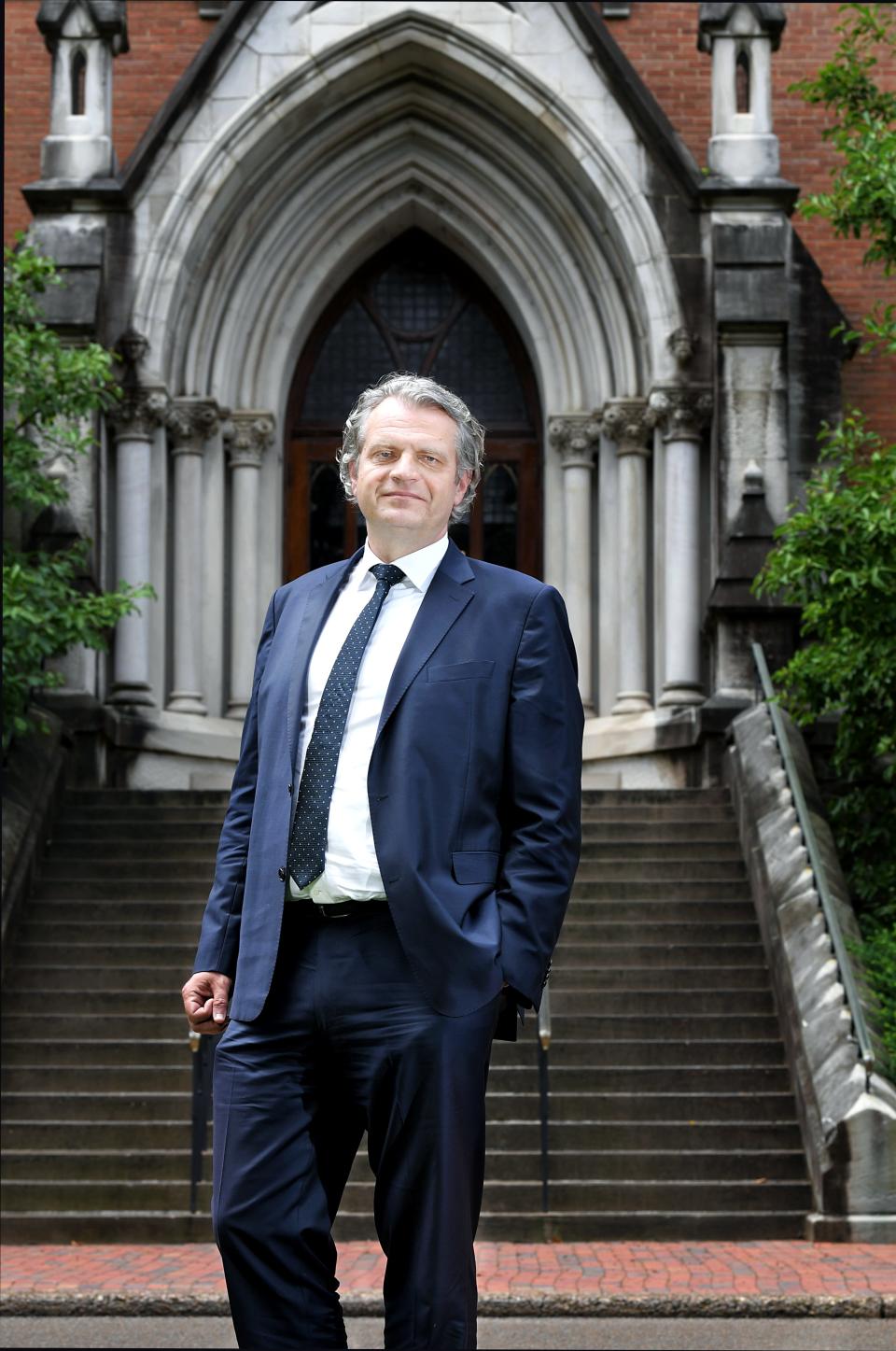International First Amendment partnership comes to Vanderbilt University
An international partnership, which is creating a new force for First Amendment education, has opened its doors on Vanderbilt University’s campus and is taking on a slew of global free speech issues.
Justitia, a nonpartisan independent judicial think tank based in Copenhagen, Denmark, that focuses on issues of justice and human rights, opened its first office in the United States on April 17 on the Nashville campus as part of the university’s new project, entitled “The Future of Free Speech.”
“The university must be a proving ground for free expression and civil discourse,” said Chancellor Daniel Diermeier, in a statement announcing the partnership. “In this moment of political polarization in the United States and around the world, universities might be the last best place where people can learn to converse and cooperate with those who see things differently.”
The initiative, which is a collaboration between Justitia, Vanderbilt University and researchers from Aarhus University’s Department of Political Science, will seek to answer three major questions through research, polling and outreach, according to the news release:
Why is freedom of speech in global decline?
How can we better understand and conceptualize the benefits and harms of free speech?
How can we create a resilient global culture of free speech that benefits everyone?

Jacob Mchangama, the founder and executive director of Justitia, will be leading the project as it begins growing roots in Nashville. A recent transplant to America, Mchangama moved to Nashville just a day before the tragic Covenant School shooting.
“Moving here with my kids was a shock to the system,” he said. “But I think there is some really amazing work to be done here.”
Mchangama’s interest in the First Amendment started abruptly, following the 2005 controversy in Denmark surrounding a series of editorial cartoons that depicted the Islamic prophet Muhammed and resulted in mass protests and deaths globally.
“Denmark was a secular, very liberal country where everyone took free speech for granted,” Mchangama explained. “And then suddenly everyone was wondering — what does free speech mean when you have a minority who feels like their free speech is under attack? Suddenly, free speech was under serious threat from terrorist groups, and that was not the norm. So I dedicated my life to better understanding free speech.”
Mchangama’s drive resulted in creating Justitia and is leading him to make this partnership the “most ambitious” it can be.
“It’s basically our ambition to foster a resilient global culture of free speech,” he said. “And we do so by advocacy that is informed by robust, cutting-edge research and data, and an interdisciplinary approach. (Diermeier) has a very ambitious goal of making Vanderbilt University the leading U.S. university regarding fostering a culture of free speech and open dialogue.”
Mchangama explained a number of projects the group will be tackling in the near future, including an interactive map of restrictions on free speech across the world, as well as a “toolkit” for organizations to combat misinformation.
“We have researchers in about 20 countries, including the U.S., looking at laws and regulations restricting free speech for our map,” he said. “We’re hoping this will give us a picture of how many laws and other habits that drive free speech restrictions. And we’re working on toolkits that can be used by civil organizations to counter hate speech and misinformation.”
Mchangama said he’s incredibly excited to bring these efforts to Tennessee — both because of the enthusiasm from Vanderbilt regarding the matter, and the sheer magnitude of First Amendment related issues occurring across the state.
“Free speech really relies on an underlying commitment to tolerance, which is necessary for a thriving culture of free speech,” he said. “For one example, it seems that the Tennessee drag law is a prime example of how U.S. culture wars translate into restrictions on free expression for narrow partisan gains.”
Overall, Mchangama says he hopes this effort will encourage people to consider free speech issues outside the box they normally inhabit.
“We’re nonpartisan and non-ideological, but one of the big problems in the U.S. is that commitment to the First Amendment — due to polarizations and tribalism — collapses along tribalist lines,” he said. “We hope to be able to come up with well-argued and thought-provoking ideas and opinions that will provoke people on both sides and persuade them that they rely on free speech — and when you undermine it, you are only ever a political majority away from being the target of those same restrictions.”
The USA Today Network - Tennessee's coverage of First Amendment issues is funded through a collaboration between the Freedom Forum and Journalism Funding Partners.
Have a story to tell? Reach Angele Latham by email at alatham@gannett.com, by phone at 731-343-5212 or follow her on Twitter at @angele_latham
This article originally appeared on Nashville Tennessean: International First Amendment partnership comes to Vanderbilt University

